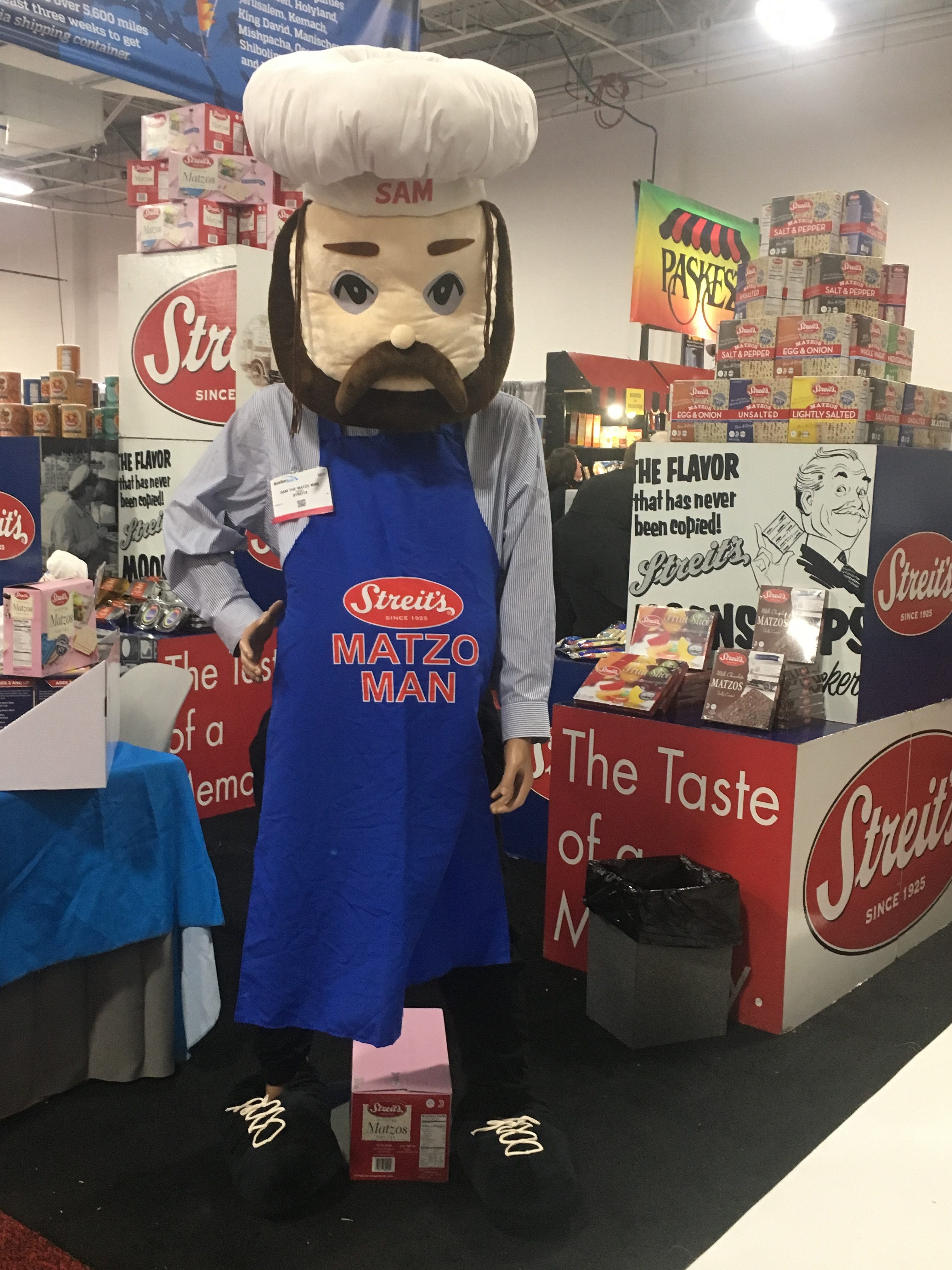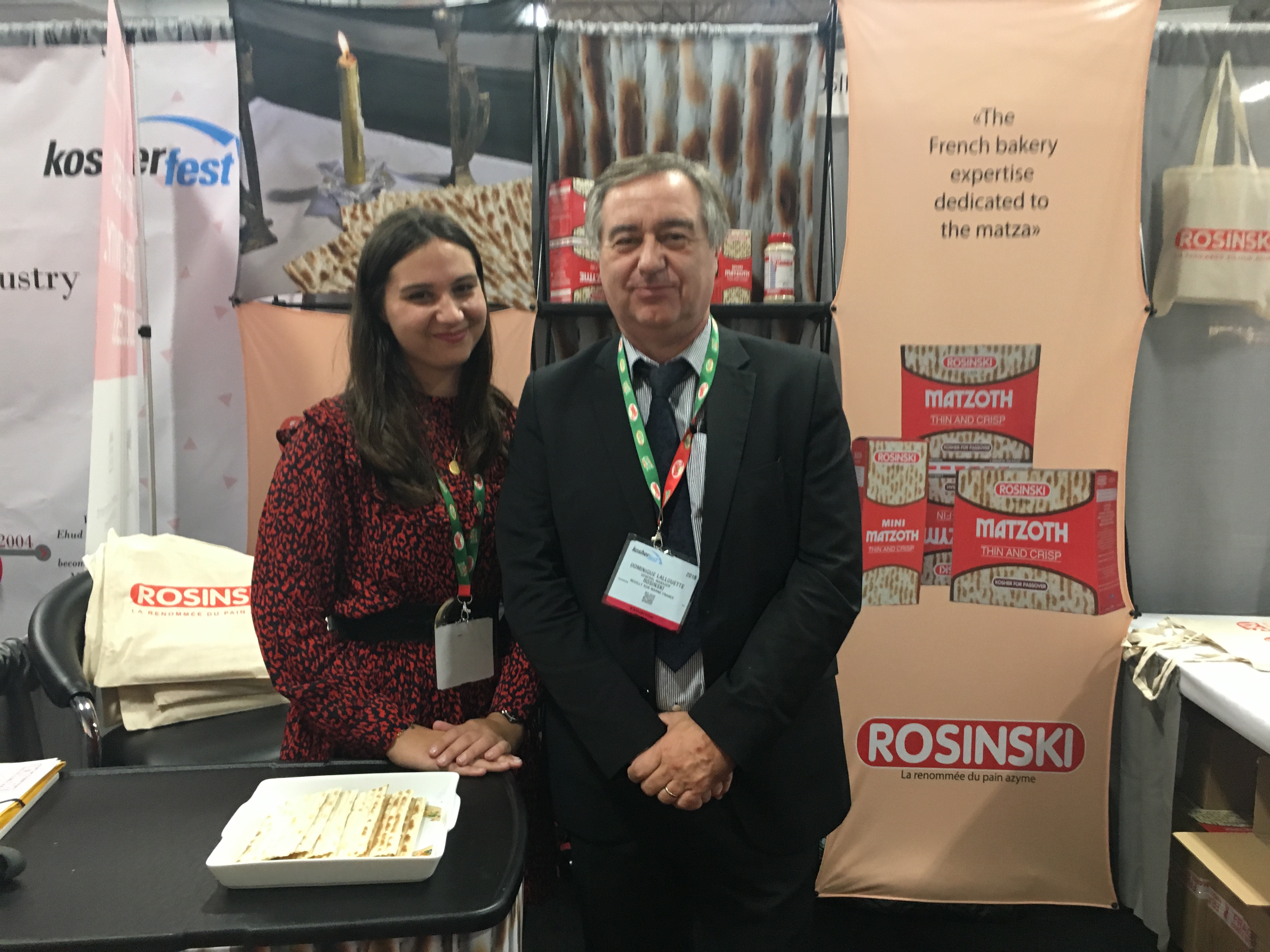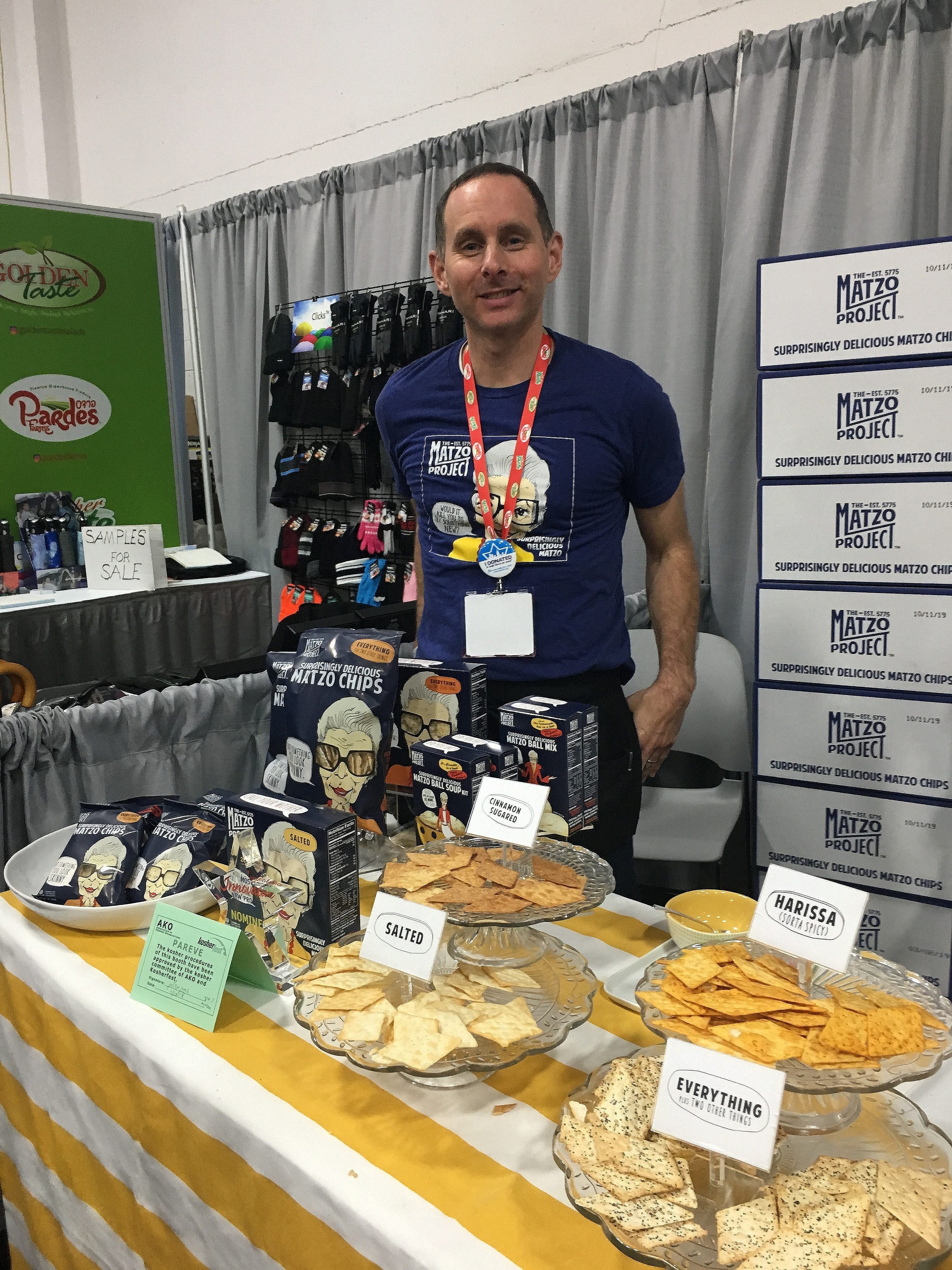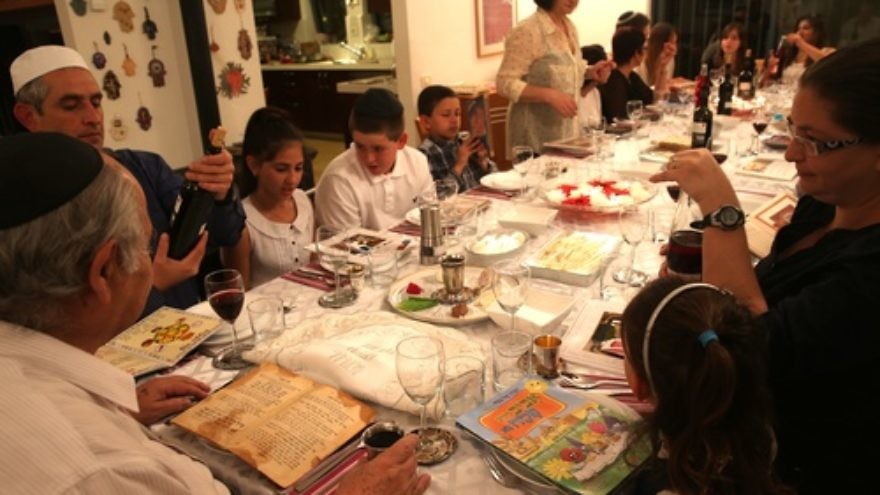When food-industry insiders entered the Meadowlands Exposition Center in Secaucus, N.J., for the annual Kosherfest trade show back in November, you could almost understand why their thoughts were on Passover.
Displays of matzah boxes and even samples of different brands of the Passover mainstay were all over the exhibit hall. Plus, there was “Sam the Dancing Matzo Man”—a 6-foot-tall mannequin that greeted attendees as they entered the convention hall. (More on Sam to follow.)

Passover starts this year on the evening of Friday, April 19, and lasts through the evening of Saturday, April 27.
Among those in attendance was Danielle Simpson, who works for Big Y Foods, a chain of supermarkets in Massachusetts and Connecticut. She noted that there’s been a growing demand in some of the chains’ outlets for more kosher food, and so she was searching for some new bakery items. (Another colleague was there checking out items for the deli section.)
“I didn’t realize everything that was available,” Simpson said, as she rushed from one booth to the next.
One bakery item that may have caught her eyes was the “Modena” cookie, which features a layer of chocolate between two cookies, from kosher-food giant Manischewitz.
“Last year I walked the aisles of the stores, and I was seeing more and more baked goods for Passover,” said Shani Seidman, director of marketing at Manischewitz. “When we thought about expanding our bakery line, we wanted to make sure everything tasted amazing. Just because it’s for Passover doesn’t mean it should taste bad.”
The company will also be offering some new flavors for macaroon fans looking to shake up their post-seder snacking.
Under their “Mishpacha” brand (mishpacha is Hebrew for “family”), the company will be selling a kosher-for-Passover instant cappuccino mix and no-sugar hot cocoa mix. Also out this year will be almond butter for easy matzah sandwiches.
According to the 2107 “Kosher Food Market” survey by marketing firm Lubicom, which puts on the Kosherfest trade show, consumers are expected to shell out some $1.5 billion dollars for items for the eight-day holiday.
Among those taking home a share of that pie is Oxygen Imports, whose date-and-orange marinade won the 2018 New Product Award in the Kosher for Passover category.
“Having a winner at Kosherfest means a lot,” said Ron Biala, CEO of Oxygen Imports, whose company took home two winner awards in this year’s Kosherfest (the second was for olives in a bag). On the wholesale market level, Biala said, the buzz from winning brings in potential buyers at the industry gathering. Thanks to packaging labels that indicate the item is a Kosherfest winner, such word-of-mouth continues at the retail level as well.
“This makes it more noticeable on the supermarket shelves,” said Biala. “Customers appreciate a product that was declared a winner, and therefore, sales are higher.”
Hoping to break into the larger U.S. market is French company Rosinski Matzoth, a family-owned business that has been making matzah in the same factory just outside of Paris since 1929. They still use a baking technique created by company co-founder Albert Moskovitch, according to his granddaughter and company spokeswoman Laura Lallouette.

Rosinki’s matzah has been long-certified as kosher by local rabbis and recently obtained additional certification from the U.S.-based Star-K, a kashrut company whose logo is more recognizable to American consumers. The decision, said Lallouette, who represented the company at the booth with her father, Dominque, was made in response to requests from stateside shoppers who liked the matzah, but couldn’t get it locally.
“It made a difference because we’ve been selling in the United States for two years now. We started distributing in Florida, and we are hoping to spread to New York and California this season,” said Lallouette. “It allowed us to develop our cross-border distribution, expanding our brand outside Europe. It is also a real pride to have our matzah reach tables all over the world.”
She continued, saying “I wish my grandfather could see it today. Before we were just in Paris, now we’ve grown in France, Europe, Israel, Morocco and Canada. I’m just so proud.”
Socks, stuffed toys and more for the holiday
But Kosherfest wasn’t just about food. Several vendors showcased novelty items designed for Passover, among them is Shulsinger Judaica/Rite Lite, whose line includes 10-plagues nail decals, temporary tattoos, games and silicone Passover spatulas. New for Passover 2019 are a matzah-themed necktie and returning “Pesocks,” or socks that come in three designs—blue and green with frogs, a brownish/gray pair that says “Lotza Matzah” on it and another blue sock—this time paired with orange that says “Pass Over” in a Yiddish-looking lettering font.
“Nowadays, socks are a stylish venue for people to express themselves, so what better way to commemorate Pesach?” said Naftoli Versch, a spokesperson for Shulsinger Judaica.
Then there’s a stuffed doll named “Sam the Dancing Matzo Man.” Created by Eli Kowalski of ToyVey Toys, “Sam the Dancing Matzo Man” (he even sings his own jingle) was awarded a 2017 Top Toy of the Year Award from Creative Child’s magazine.
Thanks to a licensing deal with Streit’s matzah company, Sam’s image will appear on some 1.5 million boxes of matzah this year, and special “Streit’s” logo-themed dolls are available through a website of the same name.
“It took us a year-and-a-half to get the licensing rights from Streit’s,” said Kowalski, who is also a children’s writer. In fact, he explained, that it was precisely while marketing his children’s books that he realized “there isn’t much out there with Jewish content” and set out to create stuffed characters Jewish children can appreciate.

Ironically, one of the products with a clearly Passover sounding name isn’t actually good for eight-day holiday. The Matzo Project is a year-round treat, according to company co-owner Kevin Rodriguez. His partner, Ashley Albert, came up with the initial concept. Among its offerings are a matzah-ball soup mix; matzah chips in flavors like cinnamon-sugar and seeded everything; a matzah-chocolate-coconut-toffee snack creation called the “Ungapotchkes” (Yiddish for over-the-top); and, yes, matzah.
The company’s hallmark navy-blue packaging features an irreverent-looking bubby on them, though her appearance wasn’t always guaranteed.
“We were both very close to our grandparents, so this voice was important. Initially, bubby was just on the corner,” relates Rodriguez, “but as we kept going that was the voice we knew people would connect to,” and so she took a larger role in the packaging.”
Rodriguez went on to explain that “matzah is a commodity. You can take something that people are familiar with and make it exciting. Especially for people who aren’t observant this gives them a way to connect with their heritage in their daily life.”


























